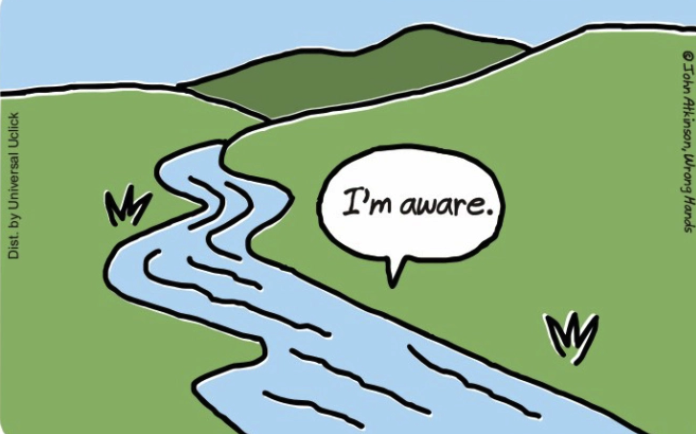FOMO, or the fear of missing out, plagues the young, affecting almost 70% of Americans according to market research agency OnePoll. The gripping phenomenon overtook me just last weekend. It was the biggest Saturday for Georgia football, and while my friends frolicked around Athens, I was at home. I tried to fill my day, keeping myself so busy that I wouldn’t notice the stories or videos on social media. I refused to check something even as small as the score of the game. While I played pickleball with my parents, however, only one thought ran through my mind: What are my friends doing? I wish I was there. Even watching Meg Ryan in bed couldn’t save me from my looping thoughts. My friends tried to comfort me with “wish you were here” messages and peppy videos, but that day I went to bed upset.
Merriam-Webster defines FOMO as the “fear of missing out: fear of not being included in something (such as an interesting or enjoyable activity) others are experiencing.” This apparent gloom is so tangible that it was officially defined in 2016. Rightfully so, we’ve all felt it before— maybe you weren’t invited to a party or had to skip a concert to study for a huge test. Interestingly, you may still battle the feeling even at the party or dinner. It seems that every weekend, at least one of my friends leaves a social gathering unsatisfied because they didn’t think they had as much fun as everyone else, didn’t talk to their crush, or were let down in some way. I’ve looked down the table countless times at birthday parties and promptly decided the other end was more fun. Truthfully it does appear the grass is greener on the other side. We have all fought this comparison and the constant need to maximize our joy, striving to have as good a time as others seem to be having.
FOMO pushes past the barrier of social settings; we constantly compare ourselves with the experiences of others. At Westminster, specifically, everyone seems to be the president of a club or captain of a team, and it’s easy to feel like you’re missing out on opportunities around you. Do you wish you were participating in a JanTerm internship? I know that while everyone else works under attorneys or travels to Poland, I hold my campus-based JanTerm with less pride. It’s impossible to feel secure in yourself when surrounded by the accomplishments of others. For example, though I am not a singer, I feel like I’m missing out on the numerous trips the ensemble takes across Europe. I am terrified of public speaking, yet I feel guilty for not being on the USA debate team or attending conferences at prestigious universities.
The term FOMO wasn’t coined until the age of social media, and there’s a direct correlation between the two. Social media is a constant stream of others’ highlights, a reminder that someone is doing something more remarkable than you. With Snap Map and Instagram stories, knowing when you are missing out has become painfully easy. Nothing is worse than seeing others get ready for something you won’t attend. It reinforces our discontent with our own plans. Constantly refreshing your feed to stay in the loop is a dangerous habit that feels almost automatic. It’s impossible to avoid the service trips to Africa, the girls rushing at your dream school, or the weekly holidays that remind us everyone is in a relationship. It’s a double-edged sword. Like my peers, I also want to showcase the coolest parts of my life. Platforms like Instagram and TikTok provide instant gratification with likes and comments, and this dopamine boost strengthens this attention-seeking cycle.
At the end of the day, FOMO holds us back. It leads to anxiety about not doing enough, low self-esteem, social pressure to attend every gathering (so exhausting), and general dejection. I’ve had the same conversation with my friend on multiple occasions; she continues to explain that she wants to go abroad but is scared of what she’ll miss out on back in Georgia. It is these exact opportunities we forfeit when we succumb to FOMO. Though nobody actively wants to live in the constant fear of missing out, it is hard to avoid.
There are essential steps we can take to tackle this fear and improve our overall quality of life. First, try to stay off social media when you know you’re missing out. Taking a break from constant updates significantly reduces anxiety and helps shift your focus away from others. Practicing gratitude can also help by centering your perspective on all the things you get to enjoy. We should strive to give ourselves grace and acknowledge all we have accomplished without comparing ourselves to others. Lastly, find the people and activities you love. Loving without judgment and away from the validation of others is the best way to find peace in your own life.
Edited by Lilya Elchahal


